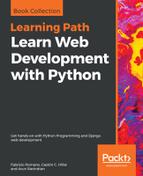In this example, we are going to explore a sudoku-solver. We are not going to go into much detail with it, as the point is not that of understanding how to solve sudoku, but rather to show you how to use multi-processing to solve a batch of sudoku puzzles.
What is interesting in this example, is that instead of making the comparison between single and multithreaded versions again, we're going to skip that and compare the single-threaded version with two different multiprocess versions. One will assign one puzzle per worker, so if we solve 1,000 puzzles, we'll use 1,000 workers (well, we will use a pool of N workers, each of which is constantly recycled). The other version will instead divide the initial batch of puzzles by the pool size, and batch-solve each chunk within one process. This means, assuming a pool size of four, dividing those 1,000 puzzles into chunks of 250 puzzles each, and giving each chunk to one worker, for a total of four of them.
